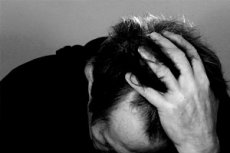What shouldn't be done after a stroke?
Last reviewed: 07.06.2024

All iLive content is medically reviewed or fact checked to ensure as much factual accuracy as possible.
We have strict sourcing guidelines and only link to reputable media sites, academic research institutions and, whenever possible, medically peer reviewed studies. Note that the numbers in parentheses ([1], [2], etc.) are clickable links to these studies.
If you feel that any of our content is inaccurate, out-of-date, or otherwise questionable, please select it and press Ctrl + Enter.

Stroke is a condition in which the blood supply to the brain is disrupted, which can lead to damage to brain tissue. Stroke can occur due to two main mechanisms:
- Ischemic stroke: This type of stroke occurs when an artery that provides blood to part of the brain becomes blocked, resulting in a lack of blood supply to that area. The most common cause of ischemic stroke is the formation of a blood clot (blood clot) in an artery in the brain, or an embolism (part of the clot or foreign object breaking off, which then blocks the artery). Ischemic stroke makes up the majority of stroke cases.
- Hemorrhagic Stroke: This type of stroke occurs when an artery inside the brain ruptures and hemorrhages into brain tissue. Hemorrhagic stroke can be caused by various factors such as aneurysms (nodular enlargements of the arteries), arteriovenous malformations (unusual connections between arteries and veins), hypertension (high blood pressure) and others.
Stroke symptoms may include loss of sensation or motor function in certain parts of the body, speech impairment, headache, dizziness, loss of vision, seizures and others. It is important to remember that stroke requires immediate medical attention, as prompt treatment can help minimize brain damage and improve prognosis.
After a stroke, it is very important to follow certain precautions and doctor's recommendations to minimize the risk of recurrent strokes and promote recovery. Here are some common things that are generally not recommended after a stroke:
- Discontinuing treatment: Do not stop taking prescribed medications without checking with your doctor. Treatment after a stroke can be long-term and is important to control risk factors.
- Changing the dose of medication: Do not change the dose of medication, either by decreasing or increasing it, without checking with your doctor.
- Self-medication: Do not start any new medications or diets without consulting your doctor. This can affect your health and recovery.
- Rehabilitation: After a stroke, rehabilitation can be extremely helpful. Do not avoid physical and speech therapies if they are prescribed.
- Control of risk factors: Continue to monitor risk factors such as blood pressure, diabetes, and cholesterol as recommended by your doctor.
- Maintaina healthy lifestyle: Continue to monitor your healthy diet, physical activity and stress levels.
- Medical check-ups: Get regular medical check-ups and monitor your health. This will help to identify possible risk factors and complications.
- Socializing: Keep in touch with family, friends and rehabilitation professionals. Support and social interaction are important for psychological and physical recovery.
- Self-driving: If your condition prevents you from driving safely, do not drive. After a stroke, you may need a doctor's evaluation to return to driving.
- Medical attention: If you develop new symptoms or your condition worsens, get medical attention right away.
After a stroke, it is important to work with your doctors and rehabilitation specialists to maximize your chances of recovery and minimize risks. Follow your doctor's recommendations and do your best to maintain a healthy lifestyle.

